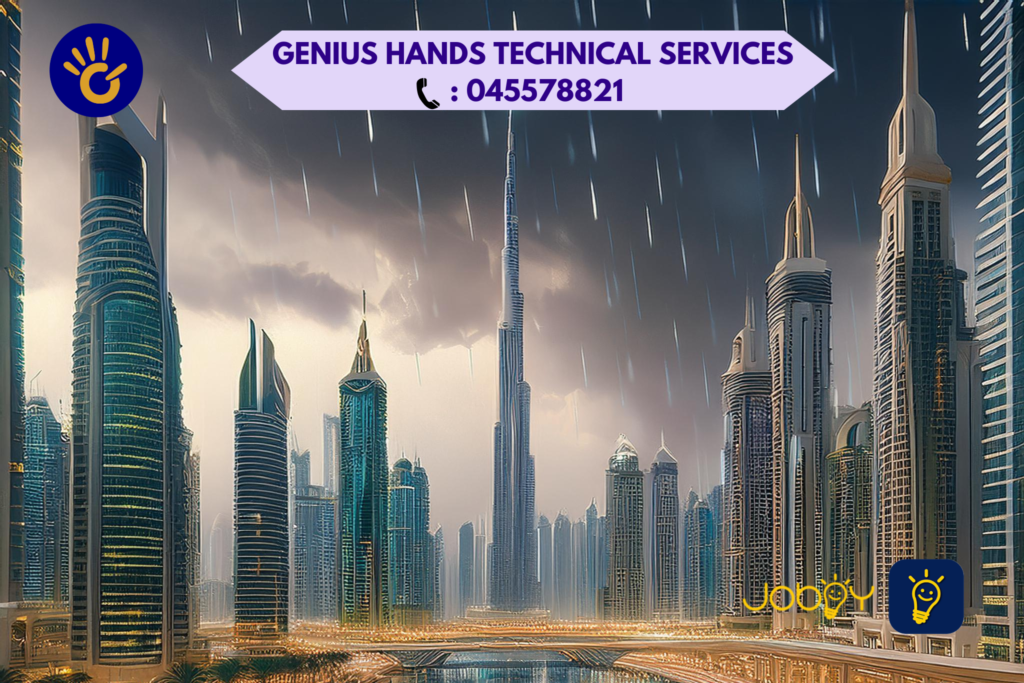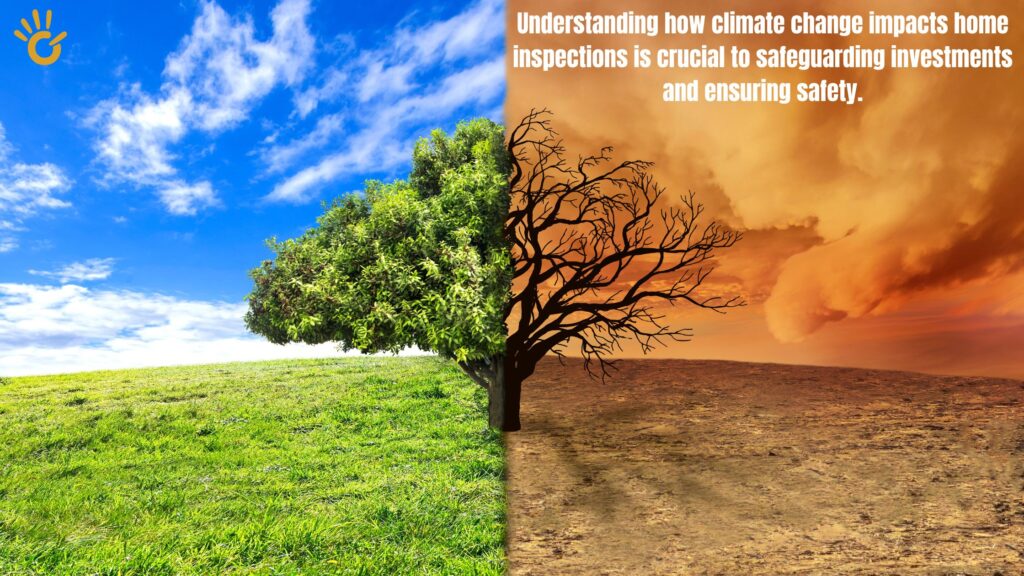Rain Management – Challenges of Rain Management in Dubai– Dubai, a global leader in urban innovation, is taking bold steps to transform into a sustainable and resilient smart city. While the city is renowned for its arid climate, occasional seasonal rains and flash floods present challenges to its urban infrastructure. Effective rain management has become a cornerstone of Dubai’s smart city vision, integrating advanced technology and sustainable practices to mitigate risks, enhance urban livability, and ensure long-term resilience.
Understanding the Challenges of Rain Management in Dubai
Despite receiving limited rainfall annually, Dubai’s infrastructure is vulnerable to sudden downpours. These rains often lead to:
- Urban flooding, disrupting transportation networks and daily life.
- Water pooling in low-lying areas, affecting property and business operations.
- Drainage system overload, leading to delays in water removal. These challenges are exacerbated by the city’s rapid urbanization, where impermeable surfaces like roads and buildings dominate the landscape, reducing natural water absorption.
Challenges of Rain Management in Dubai
Rain Management in Smart Cities: A Strategic Approach
Smart cities employ data-driven solutions and cutting-edge technologies to manage rain effectively. Dubai has been at the forefront of leveraging these strategies to address its rain-related challenges.
1. Advanced Drainage Systems
Dubai’s government has invested in state-of-the-art drainage networks to handle heavy rainfall. These systems include:
- Smart sensors that monitor water levels and detect blockages in real-time.
- Automated pumping stations that efficiently remove water from low-lying areas.
- Underground reservoirs designed to collect excess rainwater and prevent flooding.
2. Internet of Things (IoT) Integration
IoT devices play a crucial role in Dubai’s rain management framework. By deploying smart weather monitoring stations and IoT-enabled drainage systems, authorities can:
- Predict rainfall patterns with greater accuracy.
- Respond proactively to flooding risks.
- Optimize maintenance schedules based on real-time data.
3. Rainwater Harvesting Technologies
Dubai is embracing rainwater harvesting systems as part of its sustainable development initiatives. These systems collect and store rainwater for non-potable uses such as:
- Landscaping and irrigation for green spaces.
- Cooling systems in buildings.
- Street cleaning and construction activities.
This approach not only mitigates flooding but also reduces the city’s reliance on desalinated water, aligning with Dubai’s water conservation goals.
Urban Planning for Rain Resilience
Smart cities prioritize urban planning that incorporates rain management at every stage of development. Dubai’s approach includes:
- Permeable surfaces: Incorporating permeable pavements and green roofs that absorb rainwater and reduce runoff.
- Rain gardens: Strategically placed gardens designed to capture and filter rainwater naturally.
- Zoning regulations: Mandating flood-resistant designs for new developments, particularly in areas prone to water pooling.
Digital Tools and Predictive Analytics
Dubai leverages predictive analytics and Geographic Information Systems (GIS) to enhance rain management:
- Flood modeling: Simulating rainfall scenarios to identify high-risk areas and plan preventive measures.
- Smart city dashboards: Centralized platforms that provide real-time updates on weather conditions, water levels, and drainage performance.
- Citizen engagement apps: Allowing residents to report flooding issues, view emergency updates, and receive guidance during rain events.
Sustainability as a Core Focus
Dubai’s vision for a resilient future emphasizes sustainability in rain management. This includes:
- Reducing carbon footprints: By using renewable energy to power rainwater pumping stations and IoT devices.
- Wastewater reuse: Treating and repurposing rainwater for sustainable applications.
- Public awareness campaigns: Educating residents and businesses on the importance of rainwater conservation and flood prevention practices.
Case Studies of Success
Recent projects highlight Dubai’s progress in smart rain management:
- Expo City Dubai: The Expo 2020 site features advanced drainage systems and rainwater harvesting technologies, serving as a model for sustainable urban design.
- Dubai Creek Harbour: This waterfront development incorporates flood-resilient architecture and green infrastructure to manage rainfall effectively.
Conclusion– Challenges of Rain Management in Dubai
Dubai’s commitment to integrating rain management into its smart city framework reflects its forward-thinking approach to urban resilience. By leveraging advanced technologies, sustainable practices, and innovative urban planning, the city is turning seasonal rain from a challenge into an opportunity for growth and sustainability. As Dubai continues to evolve, its rain management strategies will play a pivotal role in ensuring a resilient and livable future for its residents and businesses.




Pingback: Plans for Commercial Buildings During Heavy Rains 0